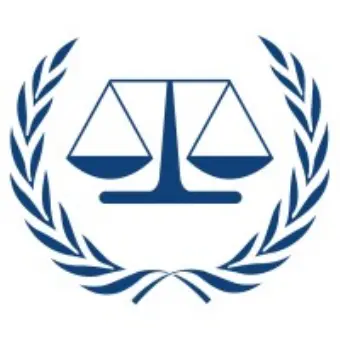Lead Analyst (P-4)

International Criminal Court
This job is no longer accepting applications
See open jobs at International Criminal Court.See open jobs similar to "Lead Analyst (P-4)" Greater Rotterdam – The Hague area.Career Opportunities: Lead Analyst (P-4) (24174)
24174 | OTP
| Deadline for Applications: | 16/11/2025 (midnight The Hague time) | |
| Organizational Unit: | Unified Teams, Office of the Prosecutor | |
| Duty Station: | The Hague - NL | |
| Type of Appointment: | Fixed-Term Appointment | |
| Post Number: | T-3368 | |
| Minimum Net Annual Salary : | €109,021.00 | |
| Contract Duration: | Until 31/12/2026 |
A roster of suitable candidates may be established for this post as a result of this selection process for fixed-term appointments against both established posts and positions funded by general temporary assistance (GTA).
Organizational context:
The Unified Teams comprise investigators, analysts, lawyers, an international cooperation adviser, and various support functions. The analytical component of the teams includes different levels of Analysts and Analysis Assistants, of different nationalities and professional backgrounds (criminal or human rights investigations, military and police mainly). They work with different types of information and evidence, including internal documentation of different groups involved in alleged crimes (military, political or others), telecommunications data, electronic data, online content and meta-data, intercepted audio records, witness statements (victims, insiders, experts etc.), videos and satellite imagery.
Analysis staff support strategically the decision-making of the Head of the Unified Team (HUT) and management. They also support operationally investigators identifying relevant leads and advising for their operations and witness interviews.
Under the overall management of the Head of the Unified Team (HUT), the Lead Analyst is part of the team leadership, supervises and oversees the activities of the Unified Team (UT)’s analysis staff (professional analysts and Analysis Assistants mainly, as well as analysts seconded to the Office) to support complex operations, and ensure the delivery of high quality, sourced analytical reports and other analytical services to the HUT and other team members.
The OTP is committed to diversity and gender equality; it applies gender analysis to its work and expects staff to behave with respect and appreciation for multiple personal and professional profiles.
Duties and Responsibilities:
- Provide managerial oversight and support to analysis staff (professional analysts and Analysis Assistants mainly) including tasking, mentoring, quality control and performance evaluation to ensure analytical resources are used in the most efficient way;
- Develop Analysis Plans, in line with the overall investigation or prosecution plans, to support the team with all required analytical products and advice, mastering fairly and efficiently objectives, sources of information and evidence, resources, timelines and tools;
- Monitor the implementation of the Analysis Plan, including timely completion of relevant tasks;
- Coordinate the implementation of the OTP specialised analytical software by UT analysts, and ensure quality of required analytical products and compliance with OTP protocols and standards;
- Identify and manage major collection projects of relevant records and data at the direction of the HUT and ensure that the information is received, registered, processed and analysed in compliance with required standards of chain of custody and evidence admissibility;
- Ensure the production of high-quality analytical products and their dissemination to the UT within established deadlines, taking quality-control and corrective action when necessary;
- Under the direction of the HUT, liaise with internal/external partners;
- When required, testify in court and convey before the Judges of the ICC the relevant analysis and explain the methodology applied for the production of analysis, on the basis of specific items of evidence and analytical products and methods;
- As a member of the UT leadership, coordinate – under the supervision of the HUT – with the Investigation Team Leader, lead lawyers and other members of the team;
- As a member of the UT leadership, contribute positively to the UT’s work culture, propose to the HUT areas for improvement for staff satisfaction, uphold a high degree of integrity, and ensure harmony amongst team analysts;
- Perform other duties as required by the Head of the UT and/or his or her designee.
Essential Qualifications
Education:
- Advanced university degree preferably in law, criminology or other relevant field of social sciences or the humanities. A first-level university degree in combination with two additional years of qualifying experience is accepted in lieu of the advanced university degree.
- Certified training in analytical techniques, including possibly the cycle of methodology, structured analytical techniques, crime pattern analysis, analysis of organisational structures, critical source evaluation and gender analysis;
Experience:
- A minimum of 7 years (9 years with a first level university degree) of professional analytic experience in the fields of criminal investigations, intelligence or similar activities.
- Demonstrated strategic and managerial experience in leading a team and defining investigative analysis strategies
Knowledge, skills, and abilities:
- Strong reasoning skills, including ability to understand complex scenarios of crime, to simultaneously manage conflicting information and hypotheses, to identify source biases, and to develop sound logical inferences;
- Excellent IT skills, including analytical software and databases (e.g., statistics, network analysis, GIS, etc.);
- Excellent ability to work effectively and constructively in multi-disciplinary teams comprised of other analysts, investigators, lawyers and support staff;
- Ability to understand the requirements of international criminal law and procedural law, and to interact effectively with investigators and legal officers;
- Ability to work under stressful conditions and to meet strict deadlines;
- Excellent communication, cooperation and negotiation skills;
- Excellent planning, project management and supervisory skills;
- Ability to work in a non-discriminatory manner, with respect for diversity regarding fellow officers, as well as witnesses and external partners;
- Ability to keep strict standards of confidentiality and security;
- High professional integrity and work ethics.
Knowledge of Languages:
- Fluency in either of the working languages of the Court, English or French, is required.
- Knowledge of another official language of the Court (French, Arabic, Chinese, Russian and Spanish) is considered an asset.
- Knowledge of another language relevant to a situation at the Court is considered an asset.
ICC Leadership Competencies
Purpose
Collaboration
People
Results
ICC Core Competencies
Dedication to the mission and values
Professionalism
Teamwork
Learning and developing
Handling uncertain situations
Interaction
Realising objectives
Learn more about ICC leadership and core competencies.
General Information
- Candidates appointed to posts at a P-5 grade or in the Director category are subject to a maximum aggregate length of service of seven years. This is pursuant to a decision of the Assembly of States Parties (ASP Resolution ICC-ASP/23/Res.2 - ICC-ASP-23-Res.2-ENG) to implement a tenure policy at the Court as of 1 January 2025.
- The selected candidate will be subject to a Personnel Security Clearance (PSC) process in accordance with ICC policy. The PSC process will include but will not be limited to, verification of the information provided in the personal history form and a criminal record check.
- Applicants may check the status of vacancies on ICC E-Recruitment web-site.
- Post to be filled by a national of a State Party to the ICC Statute, or of a State which has signed and is engaged in the ratification process or which is engaged in the accession process. This is pursuant to a decision of the Assembly of States Parties (ASP Resolution ICC-ASP/23/Res.3 - ICC-ASP-23-Res.3-ENG) to introduce a moratorium on the recruitment by the ICC of staff of non-States Parties’ nationality.
- In accordance with the Rome Statute, the ICC aims to achieve fair representation of women and men for all positions, representation of the principal legal systems of the world for legal positions, and equitable geographical representation for positions in the professional category.
- Applications from female candidates are particularly encouraged.
- The International Criminal Court applies the Inter-Organization Mobility Accord and can support secondment of staff from organizations of the United Nations Common System.


